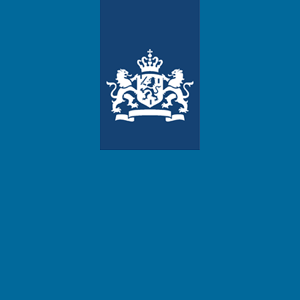
There is still a world to win from combining development cooperation with trade and investment. ‘The new policy will respond more effectively to this in the next few years,’ says Ms Schreinemacher. ‘Dutch businesses are among the leading players in several sectors – water, nutrition and logistics, for example. By encouraging them to invest in developing countries, we will be helping those countries to develop, while Dutch businesses will gain access to promising new markets.’
Fair and sustainable trade agreements are part of this pro-active trade agenda. ‘The EU is a powerful player in the field of global trade,’ remarks the minister. ‘And we need to make use of that. Through the EU we can introduce higher standards, like decent wages and sustainable growth. And we can ensure a level playing field for our businesses.’The Netherlands will be investing a sum that gradually rises to €190 million extra a year. Combined action will focus on 14 countries – eight in Africa, four in Asia, one in South America and one in Europe (Ukraine). ‘Climate action in particular has become more urgent,’ says Ms Schreinemacher. ‘And that’s where Dutch expertise can bring added value. Where possible, we’ll connect Dutch companies to development funds earmarked for climate action. We’ll deploy extra staff for this purpose, in The Hague and at the embassies.’ The development budget will increase. Ultimately, an additional €500 million per year will be made available. The Netherlands will use this money to do more in fewer countries and in fewer areas. The focus will be on what the Netherlands is good at – water, agriculture and sexual and reproductive health and rights, for example.
Investing more in development cooperation
The document outlines policy for the years ahead. ‘A lot of what we’re already doing works very well,’ says Ms Schreinemacher. The Netherlands has decided to focus on vocational education to prepare young people for work, and will leave primary education to other donors. ‘Young people in Africa say that work is their main priority,’ says Ms Schreinemacher. ‘Due to the coronavirus pandemic, global poverty and inequality have increased for the first time in decades. That calls for substantial investment, in vocational education and other areas, like healthcare.’ The Sahel, the Horn of Africa, the Middle East and North Africa will continue to be the focus regions of policy because of the extreme poverty that exists there. The humanitarian aid budget will also rise by €150 million to €520 million a year. And the government will earmark extra money for reception in the region, to reduce irregular migration.
More opportunities for Dutch businesses in developing countries
‘My aim now and in the future is to help our entrepreneurs achieve international success. The Netherlands earns a third of its income abroad. SMEs active in digitalisation and sustainability can certainly contact our embassies.’ In Ukraine too, the Netherlands has opted for a combined approach, and will explore how Dutch businesses can use their expertise to make a meaningful contribution to the reconstruction of the country. The government therefore plans to encourage them to take the plunge and do business in developing countries more often. The government also wants to introduce more focus in connecting Dutch businesses to development resources. That will benefit both the countries concerned and the Netherlands
SMEs and Dutch earning capacity
In the coming years, the Netherlands will invest more in the combination of foreign trade and development cooperation. Dutch businesses combine knowledge and expertise with an enterprising spirit. This is one of the main new themes of Minister for Foreign Trade and Development Cooperation Liesje Schreinemacher’s policy document Doing what the Netherlands is good at, which was approved by the cabinet on Friday. For a trading country like the Netherlands, with its open economy, a pro-active trade agenda is essential. Policy on foreign trade will also be more focused, targeting 25 countries. SMEs and startups in particular can count on support from the government.